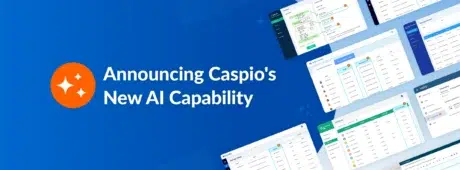Investing in Your Career in an AI-Driven World
October 27, 2023

In 2020, the World Economic Forum (WEF) predicted that artificial intelligence could replace the equivalent of 85 million jobs by 2025.
Three years later, Goldman Sachs upped those estimates to 300 million roles.
What will you do if your job is one of them?
Man Versus Machine
For as long as the conflict between man and machine thrilled literary fans and sci-fi lovers, it has – rightfully – worried workers and business owners. Could technology learn to do what humans do, but better? Could robots eventually replace human labor?
And where does that leave us, if it happens?
The truth is that the “Robot Revolution” is already here. Since the Industrial Revolution, machinery and automation have gradually become integral parts of human society. By replacing the slower, less effective humans with faster, more efficient machines, productivity rates grow higher as labor costs get lower. Even now, experts predict that generative AI – the next step in the AI revolution in which AI can produce new, unique content – could raise the global GDP by 7% or about US$7 trillion.
But these are not the numbers that matter to the ordinary worker or smaller business owner.
A study by MIT found that between 1990 and 2007, every new robot added to the workforce replaced about 3.3 workers. Fast forward to the next decade when AI and machine learning have reached unprecedented heights, there are now also growing concerns that it can lower wages for entire groups of professionals as well.
“Consider the introduction of GPS technology and platforms like Uber,” said Carl Benedikt Frey, future of work director at the Oxford Martin School, Oxford University, in an interview with BBC News. “Suddenly, knowing all the streets in London had much less value – and so incumbent drivers experienced large wage cuts in response, of around 10% according to our research”. Frey continued to state that they expect generative AI to similarly affect a “broader set of creative tasks” in the future.
Tomorrow’s Workforce
Having said all this, the future of an AI-integrated workforce is still uncertain. At the very least, experts agree that AI will continue to change the way we work and emphasize the value of upskilling as soon as possible.
Just as the WEF reported the massive job disruption thanks to automation, they also expect 97 million new roles to emerge, largely in the care economy, content creation fields and fourth industrial revolution technology industries like artificial intelligence. These roles require active decision-making and cannot be summarily automated, such as managing, advising, reasoning, communicating and interacting with other people. In addition, the WEF noted that there will be a growing demand for skilled workers in green and data economy roles, as well as new fields in engineering, cloud computing and product development.
But even workers who will remain in their original roles and industries will need to upskill or reskill their core abilities in order to stay competitive and employable.
Future–Proofing With Low Code
One avenue today’s professionals can pursue to future–proof their careers is low-code development. While certainly not a catch-all solution, learning to build custom digital solutions like business apps, websites, software and more through low code opens opportunities across many industries.
Demand for IT development skills continues to grow stronger even as the skills gap becomes wider, leaving many roles still vacant. Fortunately, low code has a lower barrier to entry than traditional coding, making it easier for more people to learn. Anyone with a computer, internet connection, a few hours a week and a willingness to upskill can pick up low code.
Learning low–code application development provides the learner with a versatile and resilient skill that is valuable in any industry. Professionals who know how to create custom solutions are highly sought after, thanks to their ability to tackle diverse tasks, solve complex problems, optimize processes and transform businesses.
Some low-code providers offer free trial accounts to encourage users to explore the full capabilities of their platform with no further commitments. Tutorials, webinars, step-by-step guides and countless other resources are also available for free for self-guided learning. For learners looking for structured courses or certification, there are multiple online courses teaching low-code development, for every level of expertise, from complete beginners to experts needing refresher.
With low code, you can build custom digital solutions and address core challenges in a variety of roles, companies or industries. Take, for instance, former Collin College Vice President of Human Resources, Norma Allen. With no prior technical background, Allen designed a multi-user faculty credential system for their HR department in just two weeks and saved the college over $100,000 in software costs. She did this by signing up for a Caspio free trial account and relying on pre-built templates and available learning resources to learn low code on the fly.
And Allen is not alone. Across different industries, thousands of non-technical professionals turn to low-code development to build the apps, websites, software and programs they need that are too niche, expensive or complex to create without dedicated IT support.
Regardless of one’s current role, skill set or background, low-code development is an undeniable advantage to anyone willing to learn it.
Set Yourself Up for Success
In an ever-evolving job market, the ability to remain adaptable and in demand is essential for career success. Low code offers professionals the opportunity to build resilience in the face of change, enhance their employability, advance their careers and seize entrepreneurial opportunities.
Future–proofing your career isn’t merely a concept — it’s a practical approach to ensuring that you remain indispensable in a world of work that is always changing.
By learning low code, you empower yourself to tackle a wide range of challenges and stay ahead of the curve in a rapidly transforming job landscape. So, invest in yourself, learn low code and embrace the myriad opportunities it offers in shaping a bright, dynamic future for your career.
With Caspio, you can embark on your low-code journey with ease and confidence. We offer invaluable resources to get you started and set you up for success, including a free plan, extensive training materials, certification programs and a community of like-minded people. These will not only equip you with the skills to build apps using Caspio’s low-code platform, but also provide you with tangible proof of your expertise in low-code development.
Learn how Caspio can help you invest in your career in an AI-driven world. Schedule a free consultation today.















